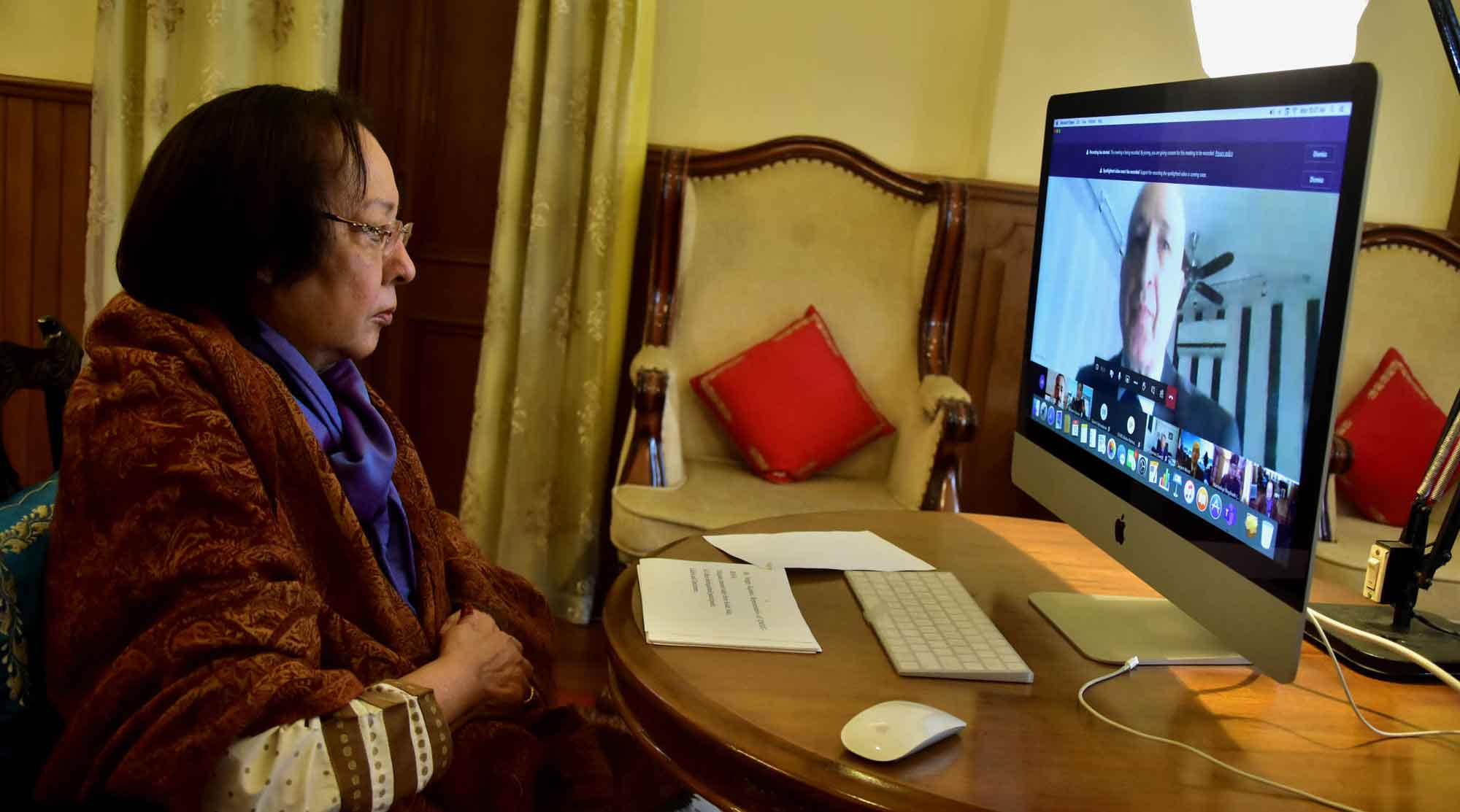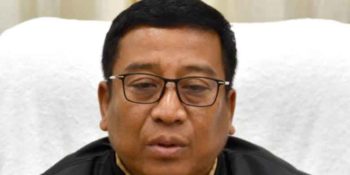Imphal: Expressing concern over the drug situation in India, Governor of Manipur Dr. Najma A. Heptulla stated that it is a mandate for all, the central government, state governments, inter-government, legislators and civil society organisations to put heart and soul to eliminate drugs trade.
In her inaugural address of the ‘Two day online interactive capacity building initiative of United Nations Office on Drugs and Crime (UNODC)’ the governor said in order to combat this menace, Government of Manipur has taken various steps to enact laws so that those people who involve in these drugs and narcotics trade will be awarded exemplary punishment.
Heptulla reiterated Prime Minster Narendra Modi’s speech in the early part of 2019 on the campaign for drug free India where the PM said in addition to the health problems and destruction of families due to substance abuse, narcotics trade is a great threat to the safety and security of the country and also one of the biggest sources of income for terrorists and anti-national elements and the money sourced by these elements through drugs trade is used to destabilize the nation.
She said the present alarming situation among the youths in the state is drug addiction and AIDS. Though, state government has been relentlessly endeavouring to control this dreaded disease, the number of HIV and AIDS infected persons has been increasing unabated. Nevertheless, it is a matter of great satisfaction to know that in Manipur, various voluntary health organisations and civil society organisations have been educating the people about the disease and related pamphlets on AIDS had been printed and distributed in all the districts of Manipur from time to time.
Sharing her experience, Heptulla said after assuming the gubernatorial post of Manipur, she travelled to most of the parts of the state, including the border areas like Tengnoupal – Indo-Myanmar border and met a large number of children, women, youth and elderly.
She said she noticed their pains and concerns and their expectations and hopes. Saying, besides poverty, the drug situation in North East is equally alarming, the governor suggested to UNODC for a robust intelligence gathering and intelligence sharing system to implement any crime prevention strategy.
Many a times, the cultivation of poppy and cannabis is for the economic needs and to wean out, a better crop replacement must be facilitated. Besides, there should be family skills training and interventions to prevent negative social outcomes which would not only add to the National Human Capital but would also provide a sustainable solution to the problem. There is also a need to promote a culture of lawfulness and build integrity and ethical values through the education system. We need innovative and comprehensive educational initiatives that support the integration of crime prevention and other rule of law aspects into all levels of education, thus contributing to community participation in crime prevention and engaging with young people in a truly consultative and participatory process while building on and investing in them as agents of positive change.
Heptulla informed that for the first time in Manipur, in a significant development, villagers of Paoyi in Ukhrul district voluntarily destroyed poppy plantation in the village for giving a boost to the state’s war on drugs. In recognition of the sentiments and gestures of the villagers, chief minister of Manipur announced a reward of Rs 10 lakh for the villagers.
She encourage the action of the villagers.
During the 2-day online Interactive Capacity Building Initiative eminent personalities including the representatives of UNODC, South Asia as well as delegates of South Asia will explore ways and means to eliminate these evils forever. The intellectuals’ pursuits of the participants of the Initiative should be followed by a mass campaign to arouse the awareness of the evils of drugs, she added.












